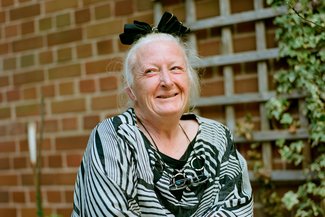
Transforming Services for Women's Futures
Our project with Changing Lives exploring how public services could be redesigned post-pandemic to better support women with multiple unmet needs.

22 Nov 2023
We’re delighted to launch Transforming Together: Building place-based networks to improve services for women, a new phase to our Transforming Services project together with Changing Lives. Thanks to funding from Smallwood Trust, Transforming Together will focus on building a resilient network of local practitioners and decision-makers in the North-East, to offer a model for collaborative systems-change.
In partnership with Changing Lives, we will build and develop a network of practitioners and women of multiple unmet need in the North East.
This network will work together to implement real change for the most marginalised women in the region, by enacting the recommendations from our recent Dismantling Disadvantage (July 2023) report.
Dismantling Disadvantage found that regional health and economic inequalities, exacerbated by the ‘triple shock’ of a decade of austerity, Covid-19 and the cost-of-living crisis, are putting women in the North-East at significant, frequently fatal, risk.
Transforming Together recognises and responds to this need for systems-change to provide better support for women experiencing multiple unmet need in the region.
It emerges from the collaborative research approach which was the foundation of Dismantling Disadvantage, which brought together a network of local practitioners and women with lived experience based in the North East to collectively develop recommendations for local systems-change.
Transforming Together will continue to facilitate this network over 20 months in pursuit of achieving those recommendations.
Members will work together to understand the barriers to the implementation of these recommendations and identify how they can be broken down locally.
As a result, we will foster a resilient, supportive network of local authority, health, criminal justice, voluntary and community partners to grow, with the capacity and tools to enact real change within the services they belong to.
Longer term, we hope this project will demonstrate the power of co-production and embedding lived experience across public service design. We will also be sharing learning throughout the project to offer a model for how devolution could assume a collaborative, whole-systems approach to better support women with multiple unmet needs.
“We’re so excited to announce our forthcoming project, Transforming Together: Building place-based networks to improve services for women. This network aims to achieve systems-change for women experiencing poverty and multiple unmet needs in the North East - the region with the highest poverty rate in the UK.
“By bringing together diverse stakeholders, including women with lived experience, local authority, health, criminal justice, voluntary and community partners, we will work collaboratively to enact the policy recommendations identified during our Transforming Services for Women’s Futures project (also funded by the Smallwood Trust). We know that women at the sharpest edge of inequality are missing out on vital support with devastating consequences; as such, public services must be transformed to better meet the needs of the most at-risk women and their children. We look forward to developing and nurturing this network in order to achieve regional change for women.”
The project is funded by Smallwood Trust.
For further updates, visit the project page for Transforming Together.

Our project with Changing Lives exploring how public services could be redesigned post-pandemic to better support women with multiple unmet needs.

As we approach Transforming Together's fourth meeting, we’ve shared this summary of the network’s journey so far, and some of the key challenges that we face.

We spoke to the women researchers from our Transforming Services project about their experiences of co-production, thoughts on being part of the project and their hopes for the impact the final report could have.